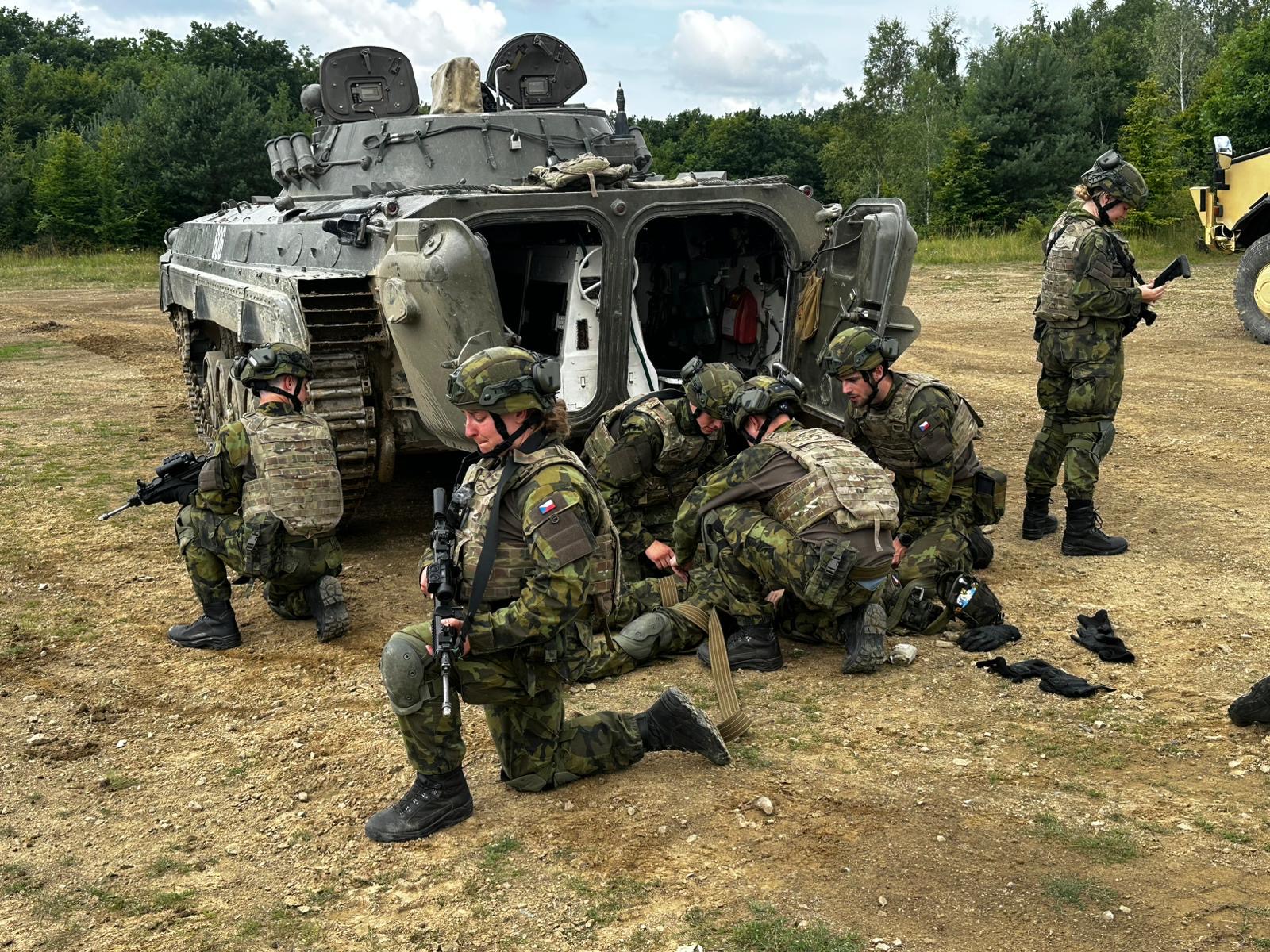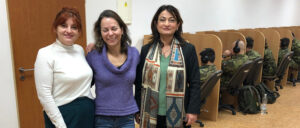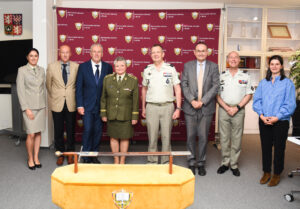At the end of July, first- and second-year students enrolled in the full-time military study program at the Military Faculty of Medicine of the University of Defence underwent continuous field training as part of the course Field Preparation. The aim of the training was to practically assess the physical readiness, psychological resilience, and professional skills of future military physicians and paramedics. The training included live-fire exercises and hand grenade throwing, which added a high degree of realism, closely approximating actual combat deployment conditions.
The training content was differentiated based on the students’ year of study. First-year students focused on basic squad-level tactical tasks, terrain navigation, offensive and defensive maneuvers, and—most importantly—medical support of the unit in field conditions. This included casualty evacuation and the application of Tactical Combat Casualty Care (TCCC) principles.












Second-year students concentrated on leading tactical operations at the platoon level, including combat in urban environments, planning and executing offensive and defensive operations, communications training in English, and advanced medical support. The program also included practical sessions on operations in contaminated environments and current lessons learned from international missions.
“We were greatly pleased to observe the enthusiasm and dedication with which our students engaged in the training—even though it was an intense test of their capabilities. All tasks were carried out in ballistic vests and helmets, with their primary weapons at the ready, both day and night. The heightened tension and adrenaline were particularly evident during scenarios simulating real combat deployment,” said Lieutenant Colonel Mgr. Jaroslava Součková from the Department of Military Medical Service Organization and Management, who supervised the exercise.
“As part of the field training, the students also fulfilled the requirements for live-fire practice with small arms and live hand grenade throwing,” she added.
The students completed a total of 78 instructional hours, primarily conducted in the field and under the continuous command of instructors from the University of Defence training regiment and staff from the aforementioned department. The training not only enhanced their military and medical competencies but also tested their ability to operate effectively as a team under demanding conditions and stress.
Author: Pavlína Šífová Pospíšilová
Photos: Lt. Col. Mgr. Jaroslava Součková




